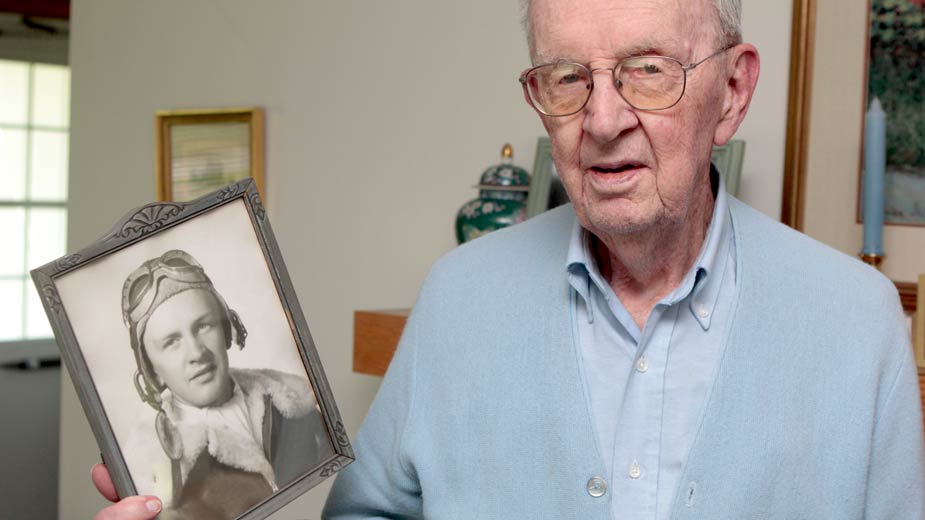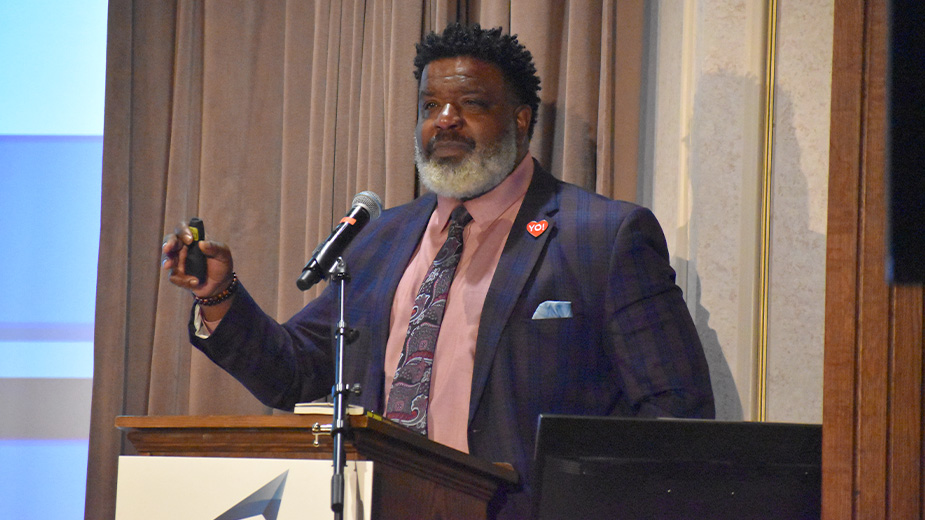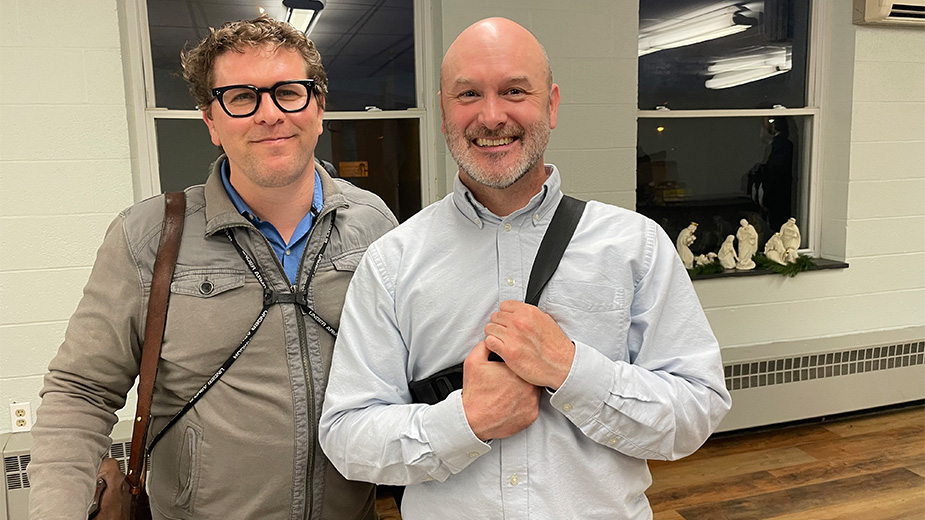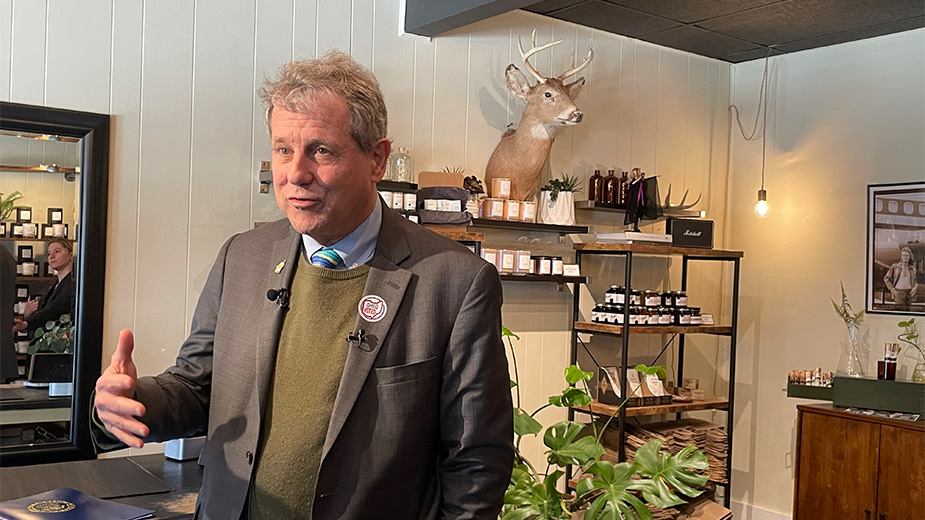Brooks Tells His Story to Heritage Group
CANFIELD, Ohio – Poland resident Don Brooks is seven decades removed from his experience as the co-pilot of a B-24 Liberator during World War II, yet he can readily recall the sensations of the bombing runs he flew over the Empire of Japan. “You could hear the sound of anti-aircraft fire exploding, even over the sounds of the four engines,” he said at the group’s May meeting.
The former first lieutenant shared memories of his military service with the World War II Heritage Service at A La Catering. A capacity crowd and several veterans of both theaters of the war were on hand.
A student at Westminster College when Pearl Harbor, was bombed, he enlisted in the Aviation Cadet Training Program in 1942. “Aviation Cadets were supposed to be the hotshots at the time,” he joked. “With the hats and the white scarves, all of the girls were supposed to be right there.”
After serving as an instructor for twin-engine advanced pilot training at Ellington Field in Houston, he received a call to report for active duty. “Get your gear. You’re going to California. That’s what they told me,” Brooks said.
After receiving his wings in April 1944, he was assigned to a B-24 Liberator crew as part of the 380th Bomb Group, 530th Squadron of the Fifth Air Force. The crew arrived in Borneo, north of Australia, as the Allies began to push toward the heart of the Japanese Empire.
Brooks, a co-pilot, flew most of his missions from a base at Mindoro in the Philippines, which the Americans began to liberate in October 1944. One of his most memorable missions was a bombing raid on Hong Kong, the British colony the Japanese seized in 1941. “We didn’t do very well on our first run. “I think we provided fish for everyone in Hong Kong,” he said with a grin. They eventually destroyed Japanese fortifications in a highly successful mission.
While flying a later bombing run over Borneo, Brooks’ B-24 needed an extra gasoline tank to make the 15-hour mission. The plane usually flew missions, at the lowest altitudes, around 20,000 feet. However, on this occasion they were ultimately forced to fly low at 1,500 feet to destroy a Japanese oil storage site.
Brooks, stationed in desolate areas of the Pacific, recalled the long hours of boredom that he and his comrades endured in between missions. “There were no real forms of entertainment,” he said. “We sat around in our tents mostly.”
One exception was a visit he made to Manila, the capital of the Philippines, after the Americans liberated it. He attended a large party in the former mansion the Japanese commandant. The American serviceman quickly found that many Spanish college-age students, perhaps descendants of Spanish colonials who once ruled the country, were available to dance, but they were closely watched by their minders, older women who made sure they didn’t misbehave.
“They didn’t trust us Yanks, and with good reason,” Brooks said to loud laughter.
Three months after the war ended, Brooks found himself back in the States. Some of his companions went into the airline industry, but Brooks, who received a juris doctorate from Case Western Reserve University in 1949, left his flying days behind him.
He joined his father’s tire business, the Safety Tire Co.
Copyright 2024 The Business Journal, Youngstown, Ohio.



